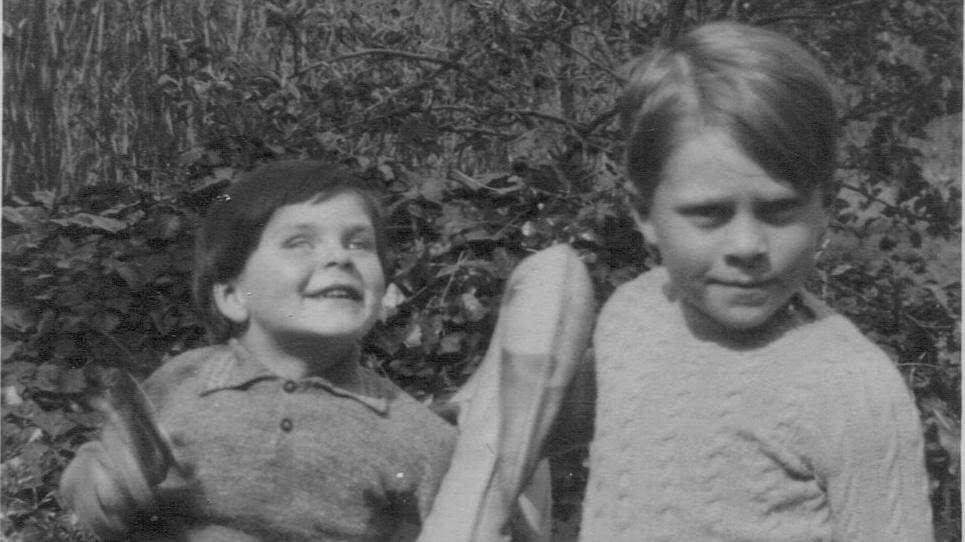'I was evacuated in WW2 and met Agatha Christie'
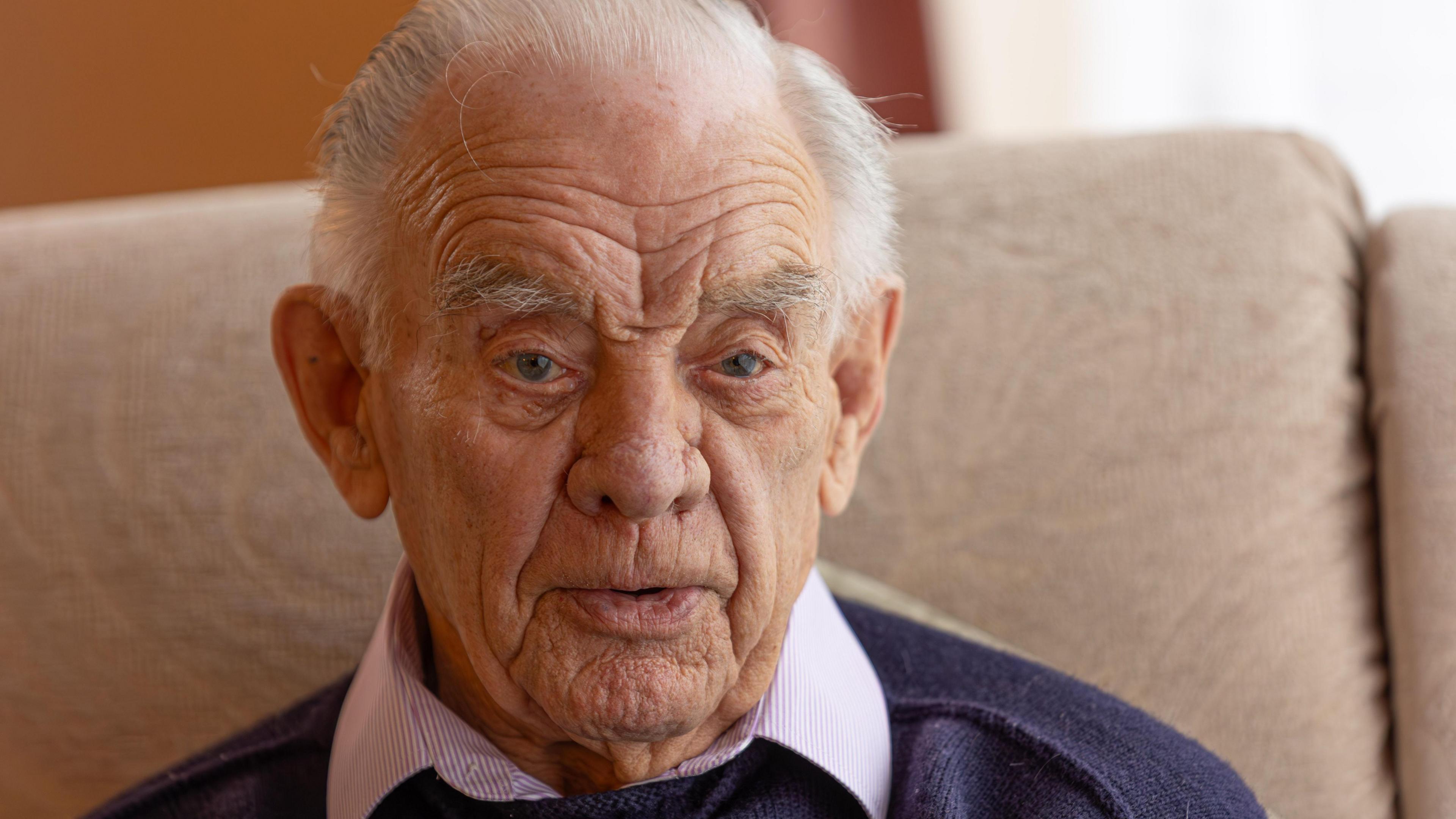
Barry Yeagers was 12 years old when he and his family were evacuated from Guernsey
- Published
When Barry Yeagers turned 12 years old, he never expected to leave Guernsey for any reason, let alone the start of World War Two.
But when it became clear Nazi Germany forces had their sights set on the island, children were offered the chance to be evacuated from the island with their schools.
He said: "My brother and I used to go swimming after school. One night a woman came down to the pool screaming: 'Get back home,' telling us we had to sign up at school to leave.
"We realised everybody was going, so we did the same and ran home, and mother took us to St Joseph's."
It was June 1940 and Guernsey's plans to evacuate the island's children to England had begun.
It is believed an estimated 6,000 children, along with their teachers, were shipped out initially to Weymouth, Dorset, for their protection, and Mr Yeagers was one of them.
Now 97, Mr Yeagers has been sharing his story as part of the Island Memories Project, a collaboration between BBC Guernsey and Guernsey Museums.
'A lot of crying'
Barry's boat arrived in Weymouth at about 15:30, when he eventually had a chance to eat a bit of food.
He said: "There was a lot of crying.
"Some of the youngsters were only six and seven-year olds, and there was a few mothers on there, but it was more teachers than anything else.
"We all had a medical at the Weymouth Pavilion and got through by 16:45.
"Next, we went across the road to a hotel and had a sandwich and a cup of tea, before boarding the train at 17:30."
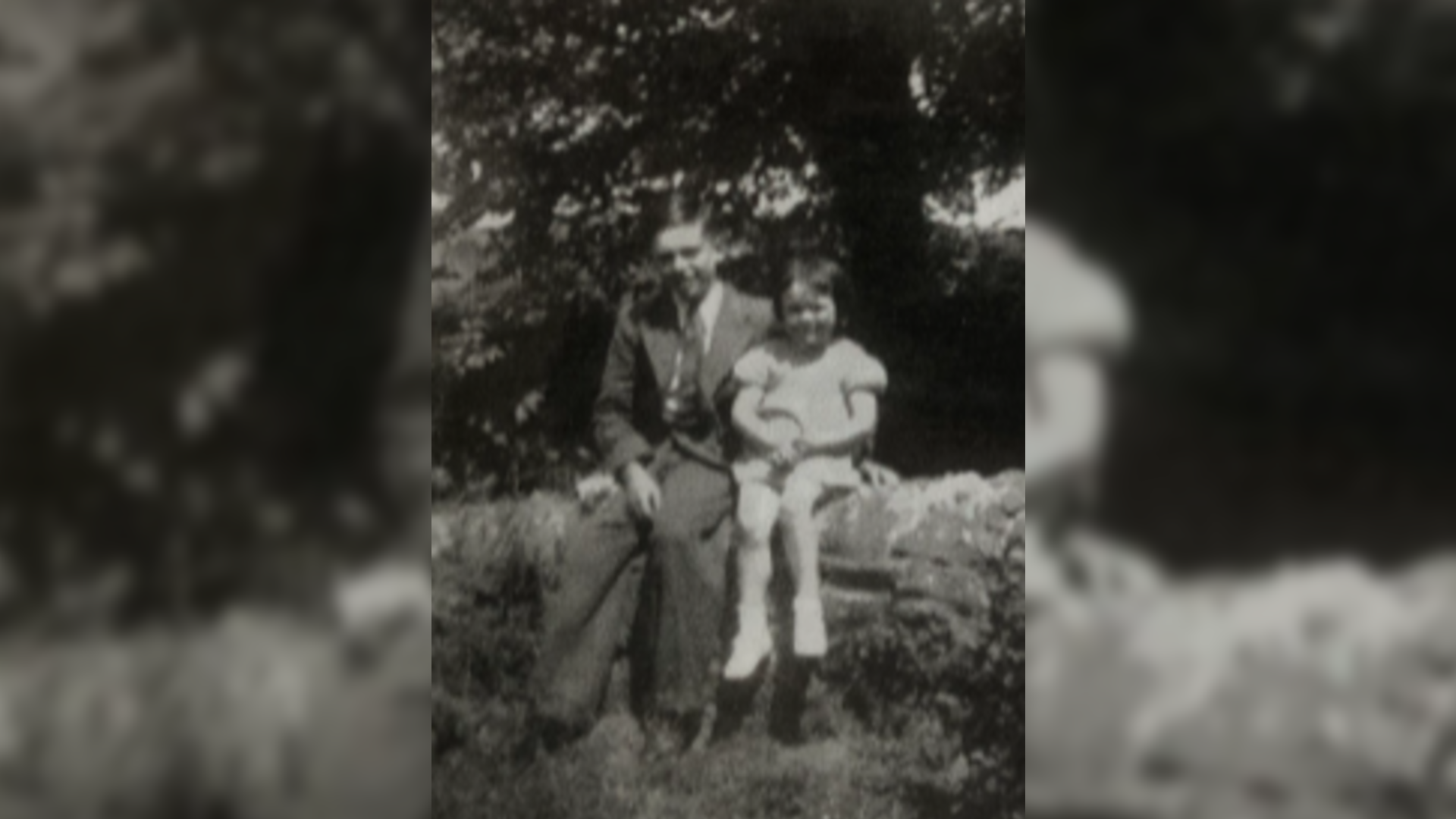
Barry and his sister Patricia were able to live together again in Devon
The journey was not a short one either, taking the group all the way to Glasgow, Scotland, and keeping them onboard for 22 hours.
"I don't know how many were on the train, but there there was at least 10 to a carriage. And there was only one stop, at Crewe, and that was at four in the morning."
The children from Barry's school, St Joseph's, were housed in a day care centre Dixon Halls.
After another move, he contracted chicken pox and was hospitalised before eventually relocating to an area in the south of Glasgow, Pollokshaws.
"That's where I started school, and I think I only went for about four days. We did nothing but drawing," he said.
And then Barry got the best news he could have asked for: "All of a sudden we were told that we were going to meet up with our family."
Agatha Christie's shilling
Barry and his brother met his mum and younger sister Patricia in Watford, and his dad was evacuated from Guernsey on a yacht from Brecqhou to Dartmouth in Devon.
The family moved to a cottage near Dittisham, on the River Dart in the county.
During his time there, Barry remembers seeing three German Stuka aircraft drop bombs on the village.
What happened in the Channel Islands during WW2?
- Published8 May
Islanders' memories of occupation and liberation
- Published8 May
The concrete reminders of five years of occupation
- Published6 May
He said: "We stayed a distance from the other side of the river for about three months [after the bombing].
"During that time, there was a boy called Sam used to row the ferry across the Greenway Quay on the other bank of the river."
Sam asked Barry if he might be able to row the ferry when Sam was unable to do it. It gave Barry a way of earning some money.
He said: "It just so happened a couple of days later I was asked to ride across and pick up this lady.
"I brought her over to the other side and she give me a shilling [five pence] instead of a tuppence [two pence]. So I split it with Sam."
He said that, in the years which followed, he found a book which contained a photo of exactly the same woman he ended up ferrying across the River Dart three times.
"It was Agatha Christie, and I didn't know. It took me two years to find out."
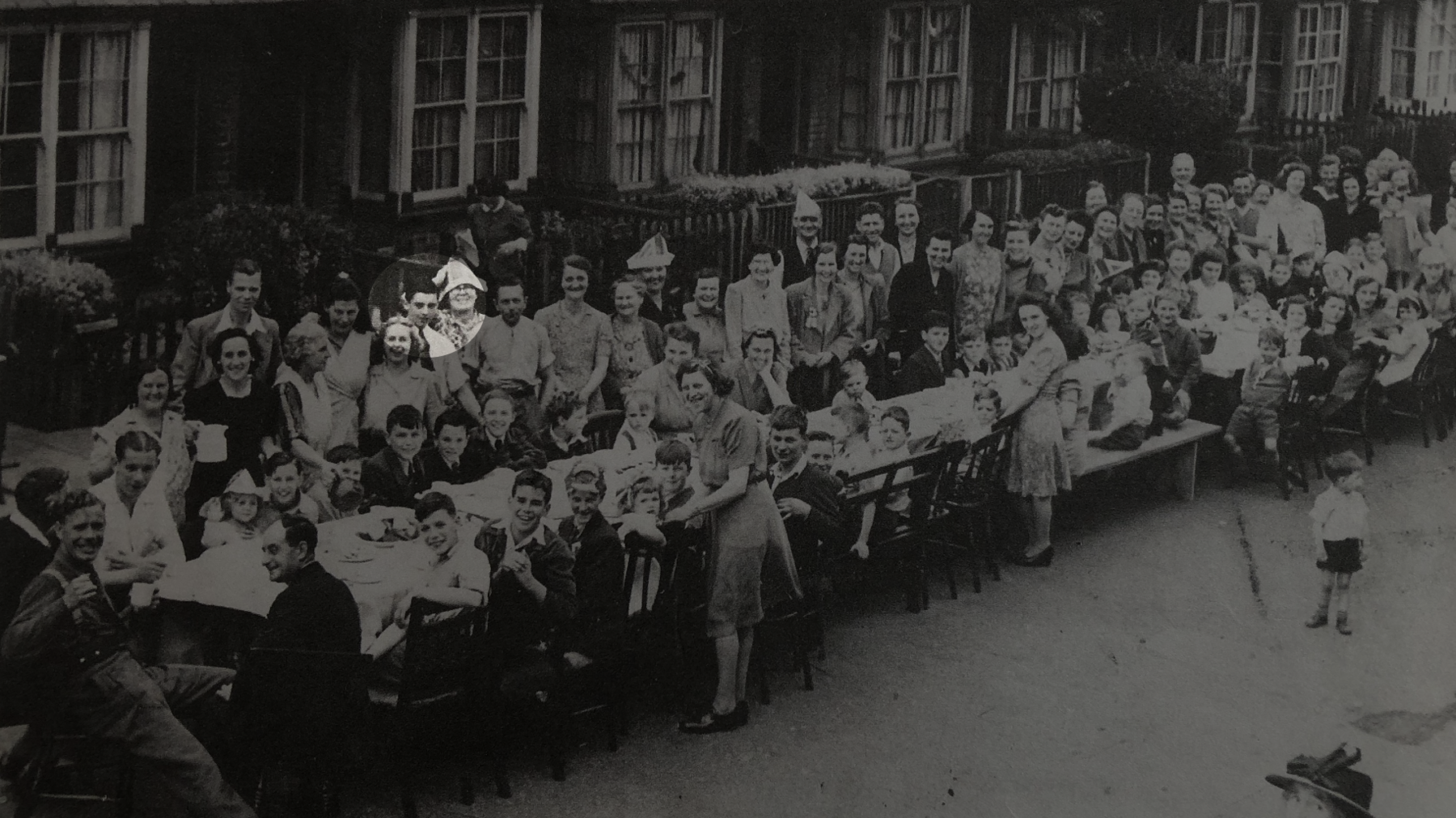
Barry Yeagers, aged 17, celebrating VE Day in May 1945
Barry and his family later moved into a cottage in South Milton in Devon, where they stayed until 1944.
He was removed from school to make space for more evacuees and began working on a farm.
His father was also called up to fight in Egypt, where he was injured in a bomb blast and sent home in 1942.
They then moved to Watford as a family and Barry began working at the Navy, Army, and Air Force Institutes (NAAFI), which provides services to the armed forces.
Guernsey was liberated from German Occupation forces on 9 May 1945, almost 80 years ago.
Barry Yeagers was 17 years old on VE Day.
Follow BBC Guernsey on X, external and Facebook, external. Send your story ideas to channel.islands@bbc.co.uk, external.
Related topics
- Published8 May
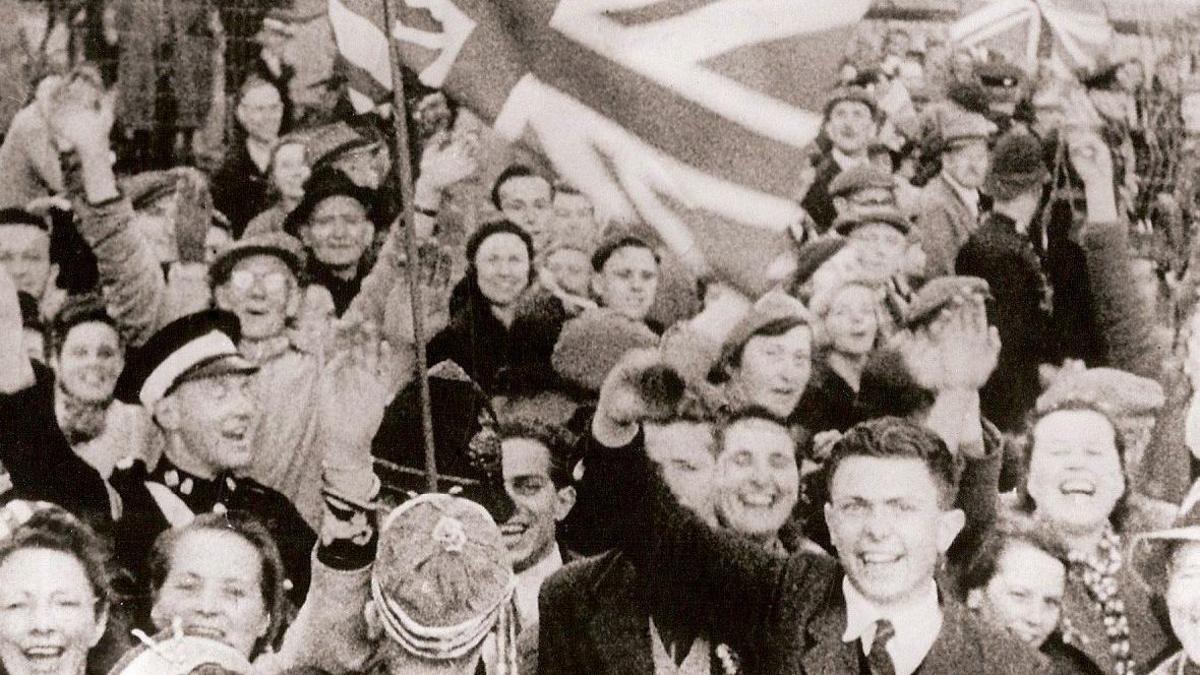
- Published6 May
